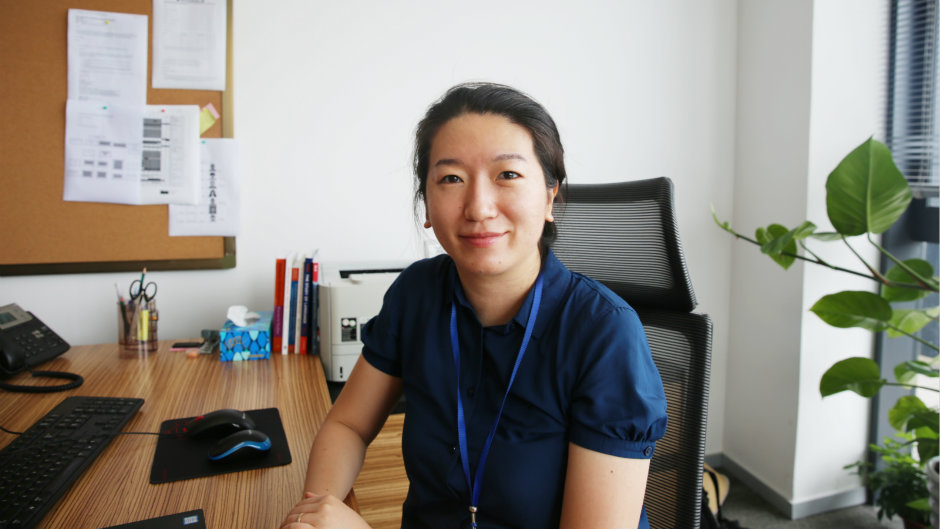12 Apr 2019
Multilingual Chinese citizens have a higher tolerance of ambiguity than their monolingual peers according to new research from Xi’an Jiaotong-Liverpool University.
The study, which surveyed 260 Chinese participants in an English as a Foreign Language (EFL) educational setting, backed up findings from previous international studies that indicate multilingualism gives people a competitive edge.
XJTLU alumna Yuhang Hu (pictured below), who conducted the research as undergraduate student with Dr Rining Wei from XJTLU’s Department of English, says the study sheds light on how multilingualism benefits Chinese users of English – an often-under-investigated community in the linguistics field internationally.

“The relationship between multilingualism and a person’s tolerance of ambiguity is a widely explored topic, but previous literature tends to address the global context,” Hu says.
“Our findings complement existing studies with new data specifically about Chinese multilinguals. The study confirmed that participants who know more than one language are more tolerant of ambiguity.”
Dr Wei (pictured below), an expert in applied linguistics, says the study contributes to an emerging field of research exploring the effects of multilingualism on individuals’ personality.

“Research shows that people who speak more than one language generally have a stronger working memory and better concentration, in addition to a higher tolerance of ambiguity,” he says.
“Broadly speaking, a higher tolerance of ambiguity helps people excel in intercultural communications and cope better in an environment of uncertainty.
“This quality is increasingly important in the uncertain times we currently face as the world becomes more and more interconnected through globalisation and technological advancements.”
Results from the study were recently published in the journal Bilingualism: Language and Cognition in a paper titled ‘Exploring the Relationship between Multilingualism and Tolerance of Ambiguity: A Survey Study from an EFL Context’.

It is the first time an undergraduate student from the Humanities and Social Sciences cluster at XJTLU has been published in a leading international journal.
Hu says her interest in multilingualism grew much stronger when she in her Year Four audited a Year Three module ENG216 Bilingualism, developed by Dr Wei that year. She says this module exposed her to a wide range of interesting socio-psychological, psychological, and cognitive variables and factors affecting bilingualism.
Under the guidance of Dr Wei, Hu devised a research plan and analysed the data she collected over a period of two months. This survey was part of her Final Year Project, which investigated another focal variable – attitudes toward ‘China English’.
The publication of the paper based on part of Hu’s project findings was partially supported by the Research Development Fund at XJTLU.
According to Professor Zhoulin Ruan, head of the Department of English, this is the first time that an English-major student published research in a high-impact (SSCI-indexed) international journal.
Professor Chee Seong Chin, dean of Learning and Teaching at XJTLU says the publication of this paper is an indicator for the excellent practices of research-led learning and teaching at the Department of English.
Hu is now studying a master’s programme at Georgetown University in the United States and will commence her PhD in applied linguistics at Northern Arizona University this fall.
“Yuhang has worked very hard for these achievements. I am very proud of her, and wish her all the best in her future academic endeavours”, Dr Wei says.
By Yixue Yang; edited by Rosanna Galvin
images provided by the Department of English
12 Apr 2019
RELATED NEWS

Research: developing the cognitive hearing aid
“When we talk to each other, we don’t just rely on sound,” says Dr Andrew Abel from the Department of Computer Science and Software Engineering at Xi’an Jiao...
Learn more

English Department project wins national research fund
Dr Yan Zhao from the Department of English, together with staff from the Language Centre at Xi’an Jiaotong-Liverpool University will conduct research on seco...
Learn more








